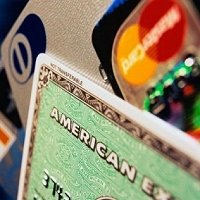The Unforeseen Consequences of Keeping a Card in "Good Standing"
 A few months ago, I called Capital One as part of my rounds when I tried to make arrangements with all the credit card companies I could no longer afford to pay. I started missing payments earlier in the year, after a surgery kept me out of work for a month. My wife and I are teachers, and summers are usually the lean months, which leaves us spending most of the year trying to catch up on our debt instead of getting ahead of it. That one month was like the pebble that started the avalanche, and soon I was missing or late with payments on most of my credit cards, instead of letting one slip so I could catch up on the others.
A few months ago, I called Capital One as part of my rounds when I tried to make arrangements with all the credit card companies I could no longer afford to pay. I started missing payments earlier in the year, after a surgery kept me out of work for a month. My wife and I are teachers, and summers are usually the lean months, which leaves us spending most of the year trying to catch up on our debt instead of getting ahead of it. That one month was like the pebble that started the avalanche, and soon I was missing or late with payments on most of my credit cards, instead of letting one slip so I could catch up on the others.I had financial trouble the year before, which I fixed for the most part, except for my interest rates, which had jumped to insane and unreasonable levels. When I had to choose between paying the mortgage on my house or making payments on several credit cards I hadn't been able to use in years, I chose to let them slide. My interest rates were already terrible at 37.17% for the Bank of America card, 25.83% for First USA, and a variable rate with Capital One that never went lower than 21%. I had a Best Buy card floating around as well, but the last time I'd gone to their website, they refused to take my payment and sent me to a customer service number, clearly part of some brilliant scheme to get me to pay by denying me access to my usual method of payment.
The rates were already out of control, how much worse could they possibly get? And how exactly did they think that I could pay twice my normal payment if I couldn't pay the regular payment the month before? Maybe if I spent a few months trying to catch up on my overdue utilities, I could put together enough money to tackle one of the ever-expanding minimum payments and start fresh.
Even as I was missing these payments, I still made an effort to pay Capital One on time. It was my oldest credit card, with my largest balance, and like so many Americans with debt problems, I made the mistake of treating the highest balance as the highest priority. Here's what I received from Capital One in return: while all the credit card companies I had been unable to pay were willing to place me in programs that would accept lower payments, offer lower rates, or even just cut out the ridiculously high late payment fees, Capital One wouldn't.
By paying them when all of my other cards were getting late or no payments at all, I kept them in good standing. That was, apparently, a mistake. I was informed that they could not possibly put me in their program because my account was in good standing. They would only do that if I missed several payments.
I asked to speak with a supervisor, and the supervisor confirmed that even though I was trying to avoid damaging my credit by making arrangements, they could not make arrangements with me as long as my account was in "good standing." "Okay, so what you're saying to me is that the only way you'll be able to put me in a program is if I stop making payments for a while and destroy my credit with you?" The supervisor hedged a little, but he basically agreed. They only offer the program to people who haven't paid.
So I took his advice and stopped making payments. I put the money toward payments I negotiated with the other credit card companies, who were very understanding about my situation. It's been about 90 days now and I've finally fallen from Capital One's good graces. They sent me a letter urging me to call them and make arrangements so that my credit won't be further damaged. Imagine that.
Labels: Capital_One, credit_card_debt, credit_cards, default, Edible_Consumer, missed_payments
|
--> CLICK HERE TO VOTE IN THE DEBT POLL <--
|



2 Comments:
FYI-if you ever have to put Capitol One in a bankruptcy, they will make a hearing in Richmond VA! regardless of where you live. You or lawyer will have to ask for change of venue. They are the worst! and Sears also will not let you go without a fight. GOOD LUCK!!
It's the same with a mortgage: most banks are only willing to work with you if you've missed payments. It's the only way they can be sure you're in serious trouble and not just trying to game the system.
Post a Comment
Links to this post:
Create a Link
<< Home